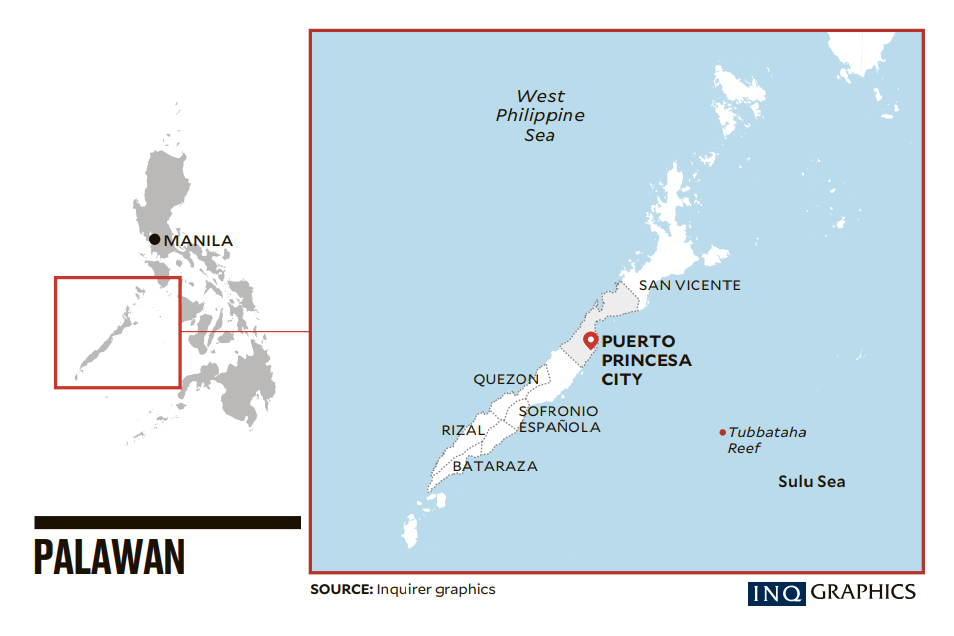Search for Chinese rocket debris continues off Palawan

Following explosions believed to be related to China’s recent space rocket launch, the Department of Foreign Affairs (DFA) has called on all spacefaring states to conduct their activities responsibly and with due regard for the rights and interests of other nations.
On Wednesday, Palace Press Officer Claire Castro said the Philippines “notes with concern” the launch of China’s Long March 12 rocket, which alarmed residents in Palawan.
“The Philippines takes this opportunity to urge all spacefaring states to conduct their space activities in a manner consistent with norms of responsible behavior and with due regard to the rights of interest of other states,” said Castro, as she read a statement from the DFA at a briefing in New Delhi, India, on Wednesday.
She added that the situation was not yet a cause for concern, despite the proximity of the fallen rocket debris to Palawan, citing information from the Philippine Space Agency (PhilSA).
“As of the moment wala naman dapat ikabahala (there is nothing to worry about),” Castro said.
She said that in accordance with the commitment made between President Marcos and Chinese President Xi Jinping in 2023, the Philippines “continues to work with China on the appropriate communication mechanisms on rapid launches and resulting procedures on the management of post-launch impacts.”
She added that per PhilSA’s initial assessment, no apparent violations were seen to have been committed by China in its rocket launch.
PhilSA confirmed the launch of the Long March 12 rocket from the Hainan International Commercial Launch Center in Wenchang, Hainan, at 6:21 p.m. on Monday.
The debris from the rocket launch was projected to have fallen within the identified drop zones approximately 238.89 kilometers (1 nautical mile) away from Puerto Princesa City and 33.33 km (18 nautical miles) away from Tubbataha Reef Natural Park.
Caution
The military’s Western Command (Wescom) deployed naval and aerial assets to search for possible debris from the Chinese rocket.
Army Col. Nephtali Padua, Wescom public affairs officer, said that following a notice from the National Disaster Risk Reduction and Management Council, which identified an area in the waters east of Palawan as a potential drop zone, Wescom personnel were immediately placed on alert and started the search on Tuesday.
“We once again launched a rotary asset on Wednesday to look for possible debris in the Sulu Sea, between the eastern side of mainland Palawan and the Tubbataha Reefs,” Padua said.
He clarified that there was no fixed timeline for how long the operation would continue.
“What we are looking at right now is that we will conduct the search until such time that debris is found or it is no longer practical to do so. But right now, there is no definite time,” he added.
PhilSA warned the public to refrain from coming in close contact with rocket debris that may contain remnants of toxic substances, such as rocket fuel.
The agency also cautioned against tinkering or breaking the metal object apart, and recommended people to wear personal protective equipment in cases when contact with debris is unavoidable. —REPORTS FROM LUISA CABATO, DEXTER CABALZA, GABRYELLE DUMALAG AND GERALDFORD TICKE

















